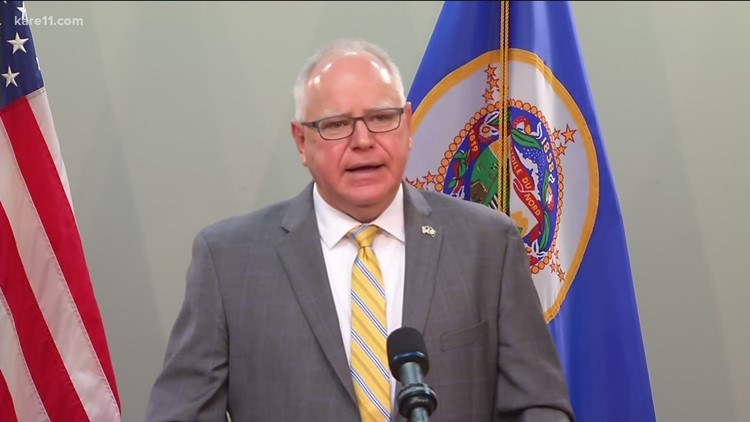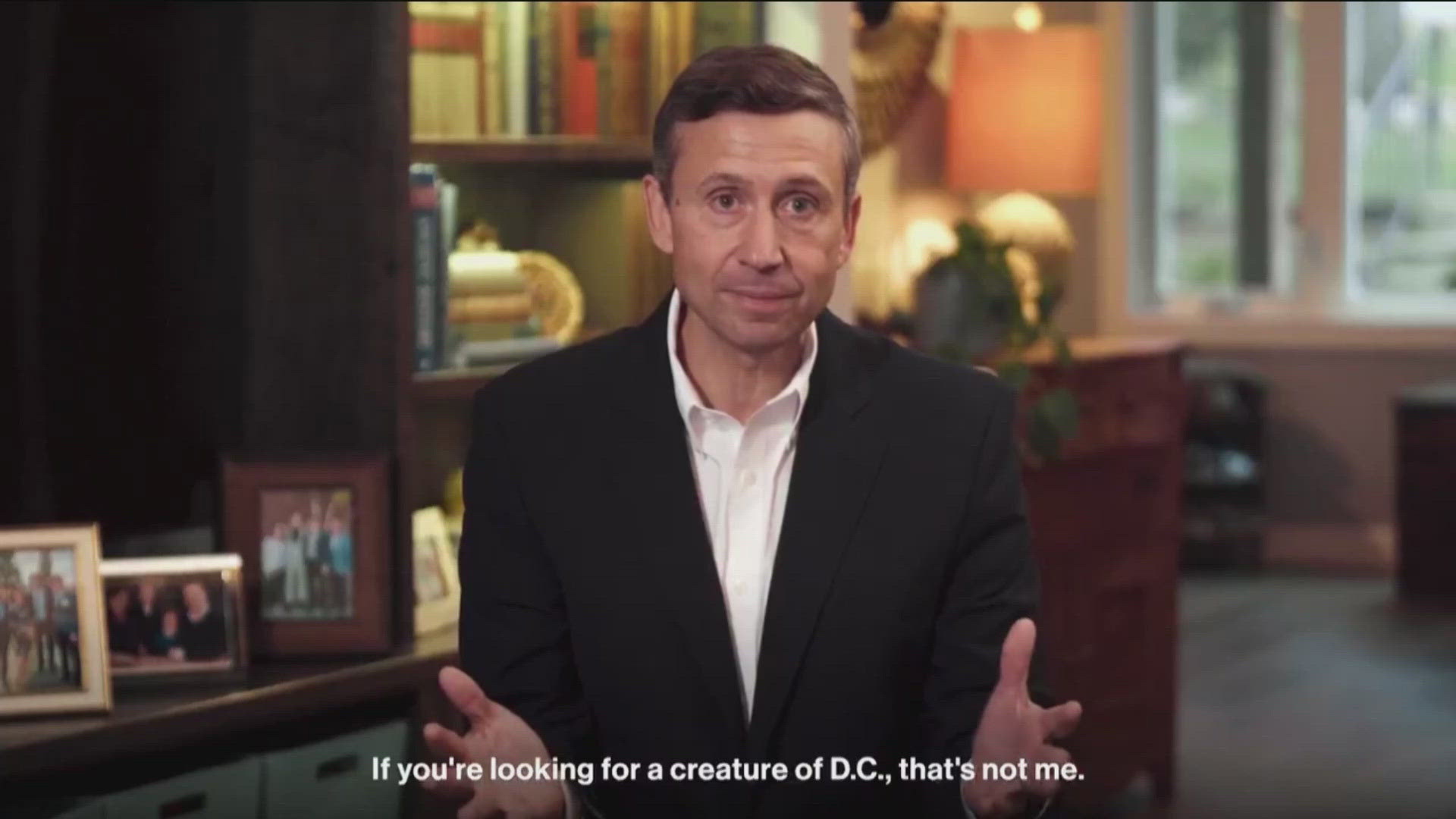ST PAUL, Minn. — Nearly 16 months after declaring a peacetime emergency in Minnesota to combat the COVID-19 pandemic, Governor Tim Walz has announced a plan to end his emergency powers as Republicans at the state capitol voted to do the same.
The DFL House Majority, which had successfully fended off every attempt to end Walz's powers since March of 2020, relented this time in order to preserve the deal they'd made with Senate Republicans.
Democrats agreed to an amendment to the State Government Finance bill to bring the state of emergency to an immediate halt. Originally Democrats added language that Gov. Walz said he needed for a smooth transition out of the emergency.
The governor announced last week that he intended to end the emergency peacetime declaration on Aug. 1. He cited at that time increasing numbers of vaccinations and a decline in cases of COVID-19.
However, as lawmakers finalize the statewide budget, lawmakers decided that Minnesota wouldn't wait another month.
Walz agreed to ending the emergency on July 1, as long as the bill included the following elements:
- Allows Health and Human Services commissioners to declare a public health disaster related to COVID-19, to preserve emergency food benefits
- Continues executive orders related to state COVID-19 staffing and unemployment insurance regulations until Aug. 1
- Preserves the governor’s authority to coordinate, allocate, distribute, and manage COVID-19 vaccination and testing without a peacetime emergency—and also his authority to declare a new peacetime emergency as necessary
Walz also made a deal with the United States Department of Agriculture (USDA), protecting monthly food emergency payments to Minnesotans in need. The $45 million deal also benefits grocers, farmers and truckers working in the food industry, according to a press release from the governor's office.
“The COVID-19 peacetime emergency allowed us to respond quickly and effectively to the pandemic this past year,” said Governor Walz. “The peacetime emergency also made Minnesotans eligible for federal hunger-relief funding for 15 months. Our agreement with our federal partners to extend those benefits for Minnesotans, coupled with the thoughtful plan outlined in the House Democrats’ amendment to wind down the emergency response in state government, means that we can close this chapter of our history and celebrate the brighter days ahead."
The office of the governor also said that people were protected from evictions and wage garnishment, and workers were protected from unsafe working conditions. More than $500 in Supplemental Nutrition Assistance Program (SNAP) benefits went to those in need, and economic relief went to people and small businesses struggling through the pandemic.
To date, the governor's office said Minnesota has received more than $505 million in increased benefits, helping around 282,000 households in the state.
"To vote no on this amendment is to vote against employers, employees, SNAP recipients and state employees who are trying to get back to their job," said House Majority Leader Ryan Winkler (DFL). "This allows us to get back to normal after we have terminated the peacetime emergency. I ask for a yes vote."
House Democrats added Walz's proposed language to the State Government bill, but then removed it when it appeared the GOP-controlled Senate was going to strip key language from the Public Safety bill.
"This is literally about the Governor, has not been working with the legislature for the last 16 months and the majority in this body has not exerted the legislative power that they have to be a co-equal branch of government," said House Minority Leader Kurt Daudt (R).
Republicans have long complained that Walz had left the legislature out of key decisions on the coronavirus response, and had used executive orders to impose restrictions on businesses across the state regardless of the threat level in those communities.
“Ending emergency powers is a legislative prerogative,” said Senate Majority Leader Paul Gazelka (R- East Gull Lake). “The governor has held onto these powers far too long and used them far too broadly. We’ve been clear that we were going to end these powers, so I’m not surprised Walz tried to outmaneuver us – but he does not get to say he let them go. The emergency is over because the Senate and the House said so.”
Democrats had defended Walz's use of emergency powers, saying it enabled him to act quickly in situations that required deployment of state workers, National Guard members and other resources. It wasn't practical, they argued, for him to call a special session and try to get agreement from a politically divided legislature.
More recently the GOP argument had become that the pandemic has ended for all practical purposes, due low infection rates and a dwindling number of hospitalizations. Walz and House Democrats had countered that virtually every other state had some form of emergency order in place for managing COVID.
Republicans opposed granting the exceptions Walz sought, saying it allowed cabinet commissioners to declare emergencies without the legislature's approval.
House Democrat added Walz's proposed language to the State Government bill, but then removed it when it appeared the GOP-controlled Senate was going to strip key language from the Public Safety bill.



